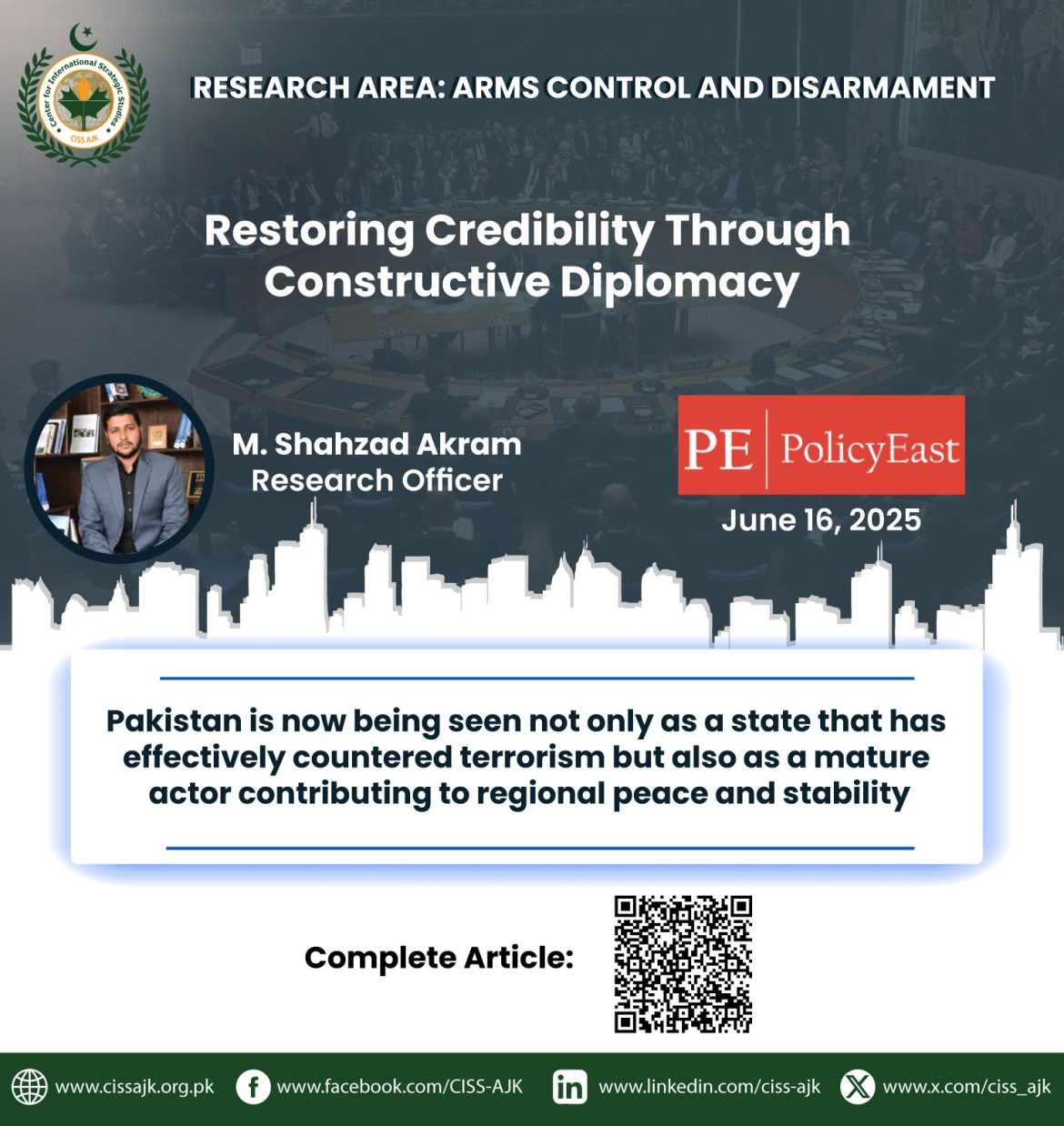In a significant diplomatic development, Pakistan has secured prominent leadership roles within the United Nations, signaling growing recognition of its constructive engagement in multilateral forums and a substantial counter to India’s long-standing efforts to isolate it at a time when India dispatched a multi-party delegation to foreign capitals to brief governments on Operation Sindoor and malign Pakistan’s reputation. Pakistan has been appointed to the following positions within the subsidiary bodies of the UN Security Council:
· Chair of the Taliban Sanctions Committee (Resolution 1988)
· Vice Chair of the Counter-Terrorism Committee (Resolution 1373)
· Co-Chair of two informal working groups (Sanctions and Documentation)
Islamabad was entrusted with key leadership roles in the UN Security Council’s subsidiary bodies, including as Chair of the Taliban Sanctions Committee and Vice Chair of the Counter-Terrorism Committee. These appointments reflect international recognition of Pakistan’s active participation in global counter-terrorism efforts and its growing stature as a responsible stakeholder, as well as its active engagement in multilateral diplomacy.
Pakistan appointed Chair of UN Taliban Sanctions and Vice Chair of Counter-Terrorism committees.
The timing of these developments is particularly significant, occurring in the backdrop of heightened regional tensions and India’s recent, yet unsubstantiated, allegations against Pakistan regarding the Pahalgam incident. However, the present trajectory reveals a diminishing efficacy of India’s isolation strategy and a rising credibility for Pakistan.
Pakistan’s constructive role in global governance reflects a broader restoration of trust by the international community. Major financial institutions, such as the International Monetary Fund (IMF), disbursed $1 billion, followed by an $800 million commitment from the Asian Development Bank (ADB). The World Bank is currently discussing a comprehensive $40 billion financial assistance package. International institutions have shown renewed confidence in Pakistan, indicating a strategic reevaluation by global lenders who now increasingly perceive Pakistan as a stabilizing force within South Asia, reinforcing its status as a reliable partner.
These endorsements, when viewed alongside Pakistan’s multilateral roles, are helping to recast its international image from a security-challenged state to a responsible and stabilizing actor. In contrast, India’s confrontational and ideologically driven foreign policy, increasingly shaped by radical Hindutva narratives, is being viewed with skepticism. The lack of global endorsement for India’s recent allegations against Pakistan, particularly due to insufficient evidence, reveals a growing unwillingness among key international actors to support coercive or unilateral diplomatic posturing.
India appears to be facing a period of diplomatic stagnation and relative isolation. Its recent attempts to internationalize its grievances, particularly those directed at Pakistan, have met with limited support from the global community. Major Powers refrained from endorsing India’s narrative, while countries such as China, Turkey, and Azerbaijan have explicitly expressed solidarity with Pakistan.
Major global financial institutions reaffirm strategic trust with substantial financial commitments.
India’s current foreign policy trajectory under Prime Minister Narendra Modi is being criticized as lacking strategic direction. Recent high-profile international visits have been perceived more as spectacles tailored for Non-Resident Indian (NRI) audiences than substantive diplomatic engagements. Observers have noted the absence of tangible outcomes such as bilateral agreements or multilateral endorsements arising from these visits. Formal speeches, ceremonial engagements, and public rallies with limited policy impact have characterized Modi’s international appearances. India’s absence from recent key multilateral discussions, including the informal exclusion from the G7 deliberations, underscores a broader recalibration of global diplomatic alignments. The optics of statecraft are increasingly being measured against actual policy contributions and institutional engagement.
This diplomatic shift has broader regional implications. Pakistan is now being seen not only as a state that has effectively countered terrorism but also as a mature actor contributing to regional peace and stability. By resisting provocation and adhering to institutional diplomacy, Islamabad has outmaneuvered India’s aggressive stance, positioning itself as a credible advocate for peace in South Asia. The international community’s recognition of this role is a strategic win for Pakistan. It demonstrates that substantive engagement, measured statecraft, and commitment to global norms are increasingly being rewarded, whereas performative diplomacy and populist rhetoric yield diminishing returns.
India’s diplomatic isolation deepens as Pakistan’s credibility and responsible diplomacy rise.
Pakistan’s quiet but effective diplomatic conduct is thus transforming its international image, allowing it to challenge and displace the narrative shaped by a “regional net insecurity provider” and instead emerge as a beacon of stability in a region marked by rising extremism and political volatility. This shift signifies not merely a diplomatic success for Islamabad but a broader geostrategic correction where substance, stability, and statecraft are once again being prioritized over symbolism and populism in international affairs.



